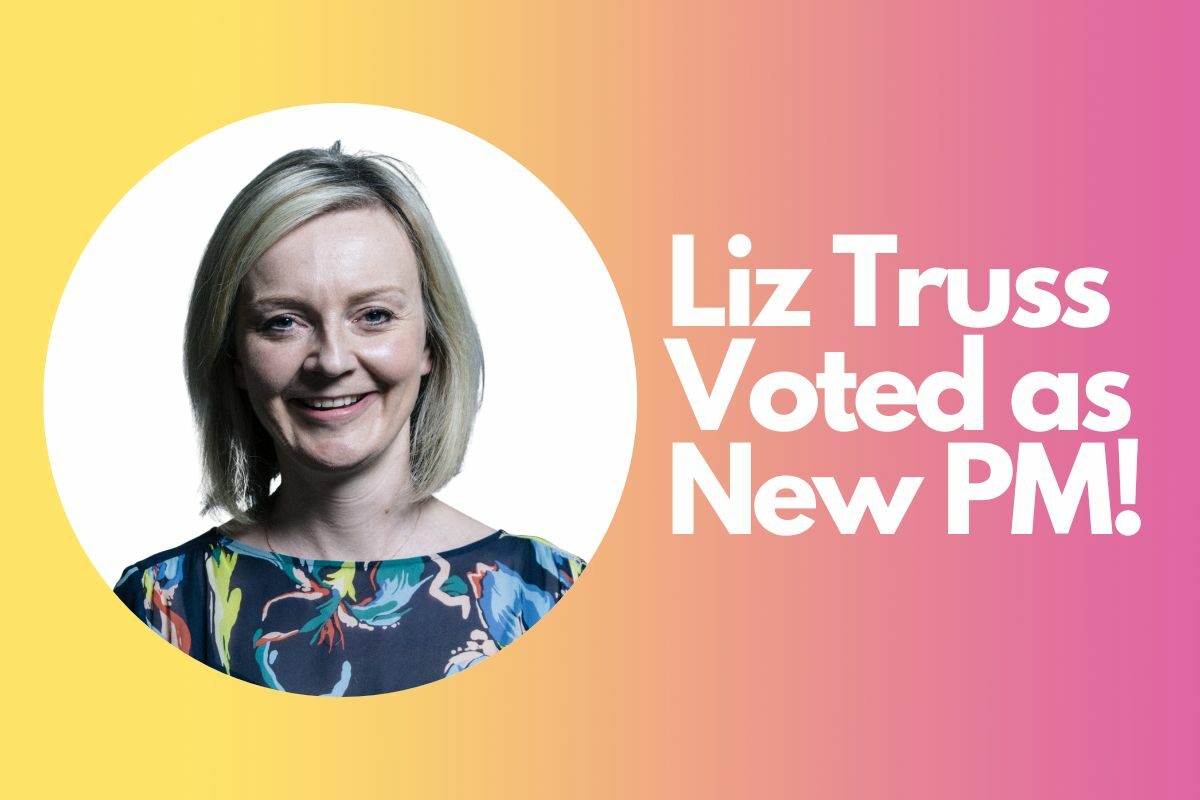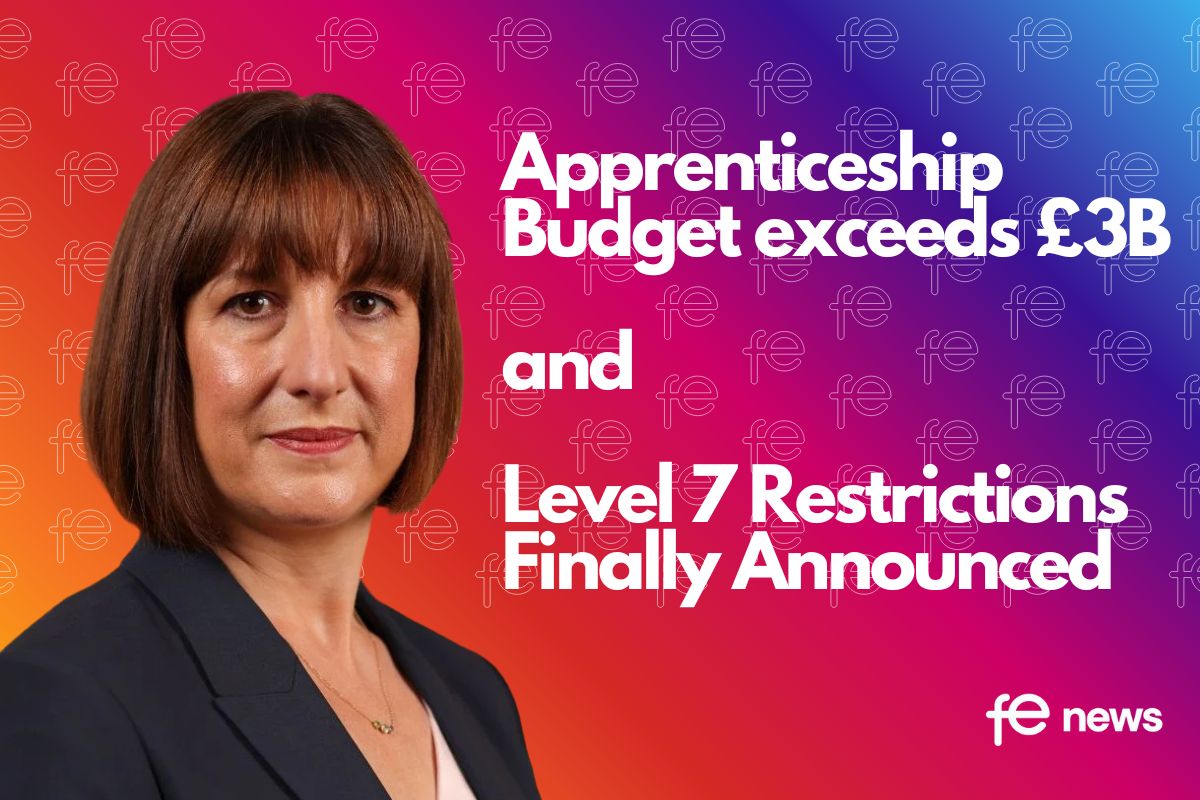Liz Truss announced as new Prime Minister – Sector Reaction

Liz Truss has been announced as Prime Minister, after defeating Rishi Sunak in the Tory leadership contest. Liz Truss received 81,326 votes and Rishi Sunak 60,399 votes, with a 82.6% turnout.
So, what happens next?
Liz Truss is now the leader of the Conservative Party… but she is not prime minister yet! Here is what to come now:
- Boris Johnson has not formally quit as premier. This happens Tuesday 6th September
- Boris Johnson is expected to make his last address from outside Downing Street at around 8am BST, 6th September
- Afterwards, he will leave for Balmoral in Scotland to see the Queen. Following that, Truss will then also visit the Queen.
- She will become the 15th British Prime Minister to be appointed by the current monarch, and the first to be appointed outside London. She will also be the 3rd female Prime Minister
- Johnson and Truss will then travel back to London – and the Truss will appear outside No 10 in the afternoon.
- Following this, a flurry of cabinet announcements is expected, as Truss builds her new government. Another Government Reshuffle!
- Then on Wednesday, Truss will face Keir Starmer during the Prime Minister’s Questions as work begins in the commons
Since being voted to takeover Boris Johnson as Prime Minister, a lot has happened. Here is a short summary:
- Truss has pledged to cut taxes and “deliver” on tackling the energy crisis
- Priti Patel, Home Secretary, has announced she is resigning but will continue to work in government from the backbenches
- Ben Elliot, the Conservative party co-chairman, has stood down
Sector Response
Jane Hickie, Chief Executive of AELP:
“I would like to congratulate Liz Truss on her election as Conservative Party leader. She becomes Prime Minister at an incredibly challenging time for the country, and I wish her all the best.
“Our sector is fully behind the government’s aspiration for a world-class skills system. However early intervention will be critical to address the numerous challenges faced by the sector, the greatest of which is the impact of inflation on employers, providers and learners.
“The new leadership will need to get to grips with all of the issues facing our sector quickly. Our success as a nation relies on a sustainable skills system, which meets the needs of employers and aspirations of learners. We look forward to discussing this with her team very soon.”
Tony Danker, CBI Director-General, said:
“Congratulations to the new Prime Minister. This is an extraordinarily difficult time to be leading the country, and she has businesses’ full support in meeting shared challenges together, head on.
“Most immediately, support for struggling households and firms in jeopardy is top of the in-tray. This may not be the pandemic, but the exceptional circumstances we now face mean Government must play a central role in supporting our economy.
“And if we’re serious about getting the UK growing again, ensuring any slowdown is short and shallow, we need a serious plan for growth. It needs to be bold, unconventional and rooted in the very real opportunities that still exist for the UK to thrive.”
REC CEO, Neil Carberry said:
“Everyone at the REC would like to congratulate Liz Truss on her appointment as Prime Minister. We are keen to work with her and the new Ministerial team on strengthening the labour market and overcoming labour and skills shortages. We welcome the Prime Minister’s focus on reducing NI and on reviewing the application of IR35 as it doesn’t work and we need legislation that supports flexible working.
“As well as reducing ambiguity over tax status for businesses we hope to work with the new government on skills and immigration policies that support economic growth and boost productivity. A quick win on both would be to reform the Apprenticeship Levy to make it accessible to many more people including temporary workers.”
Geoff Barton, General Secretary of the Association of School and College Leaders, said:
“There are many pressing issues facing education, but the immediate crisis is the soaring cost of energy bills both for households and for schools and colleges. These costs will plunge more families into poverty and mean more children are left cold and hungry and in no fit state to learn. Given that there is no energy price cap at all for schools and colleges, spiralling bills will mean that they have to cut educational provision in order to balance their budgets.
“We’ve seen the reports of an emergency package of financial assistance apparently due to be announced later this week and we look forward to the detail. We appeal to the new Prime Minister to ensure that she protects families, children, schools and colleges from the potentially devastating impact of these costs.”
Manny Gill, Business Head of PMI (Project Management Institute) in the UK, said: “The country today welcomes new leadership and the appointment of a new cabinet. The new regime will be faced with a long list of pressing issues to solve, but for the new Education Secretary the most crucial one is the development of youth skills.
“With the need for organisations to become digital at the same time as tackling the net zero challenge, managing these complex and important projects will define the success or failure of the businesses of the future. Yet, it has become increasingly clear that the education system in the UK is not providing our young people with the skills required to bring about the sweeping changes needed.
“However, with new leadership comes the potential for a renewed focus on skillsets that will help workers, companies and our economy thrive.
“Employers are increasingly looking to hire individuals that are ready-made to drive success. Now more than ever, there is an increased desire to hire those who possess power skills – such as communication, creativity, emotional intelligence, leadership, and problem-solving – in favour of hard skills. As it stands, the school curriculum focuses on content and ways of learning that do not sufficiently encourage students to develop and refine these skills. This threatens to leave the next generation of workers left behind.
“We would encourage our new education secretary to reassess whether the curriculum is fit for purpose to address the current talent shortages in the UK. With a revitalised school curriculum, and simple training programmes such as PMI’s KICKOFF course, we can channel the development of power skills in young people, equipping them with the tools needed to navigate the next stage of their professional development, and in turn support an economic bounce-back following a turbulent few years.”
Lee Elliot Major, Professor of Social Mobility at the University of Exeter, said:
“At the very top of the in-tray for the new education secretary is helping schools to manage the unfolding crisis of escalating costs and increasing hardship now affecting the lives of millions of children and young people. This threatens to be education’s winter of discontent: it’s not just deteriorating conditions at home – poorer pupils will be less able to concentrate in class on empty stomachs, and less likely to get to school in the first place.
“Teachers are becoming as much social workers as educators and are in desperate need of further financial support. We will have to look at a range of new ways of supporting schools – including the recruitment of undergraduates as tutors to help pupils with foundational literacy and stronger school parental engagement plans including home visits, workshops and systematic texting to help improve home learning environments.”
Kevin Courtney, Joint General Secretary of the National Education Union, said:
“Liz Truss inherits a whole set of challenges in need of urgent attention. The cost-of-living crisis affects every citizen, every public service, every business. To survive this period will require significant governmental support and swift action.
“Teacher pay, support staff pay and school funding are all live issues, with the government’s current pay deal falling far short of what is required. Whoever ends up with the education brief must look again at the case for a fully-funded pay rise which at least matches inflation. The current 5% deal for teachers and 8% for support staff adds up to a further pay cut, on top of more than a decade of real-terms cuts to pay. Teacher recruitment and retention has been in a parlous state for some time, and this must be arrested urgently if we are to protect education services into the future.
“School funding has been similarly depressed in recent years, with the costs of running a school continuing to rise. Austerity then Covid were tests of resilience, and the energy crisis is the latest. Government cannot expect schools to make ends meet forever.
“Children and young people are suffering as a result of the Government’s decision not to invest in and prioritise education recovery. They should no longer be an after-thought, nor bear the brunt, and we urge the new Prime Minister to shield children during the cost-of-living crisis and to take urgent steps to end child poverty.
“The general public will see through any attempt by Liz Truss to disassociate herself from twelve years of Conservative mismanagement. She served under David Cameron, Theresa May and Boris Johnson, and must carry that collective responsibility with her. Some positive change in direction to the benefit of the education system will be welcome.”
Walid Koudmani, chief market analyst at financial brokerage XTB, says:
“We saw softness in the UK pound in the immediate reaction to Liz Truss being named new Conservative leader and as a result, UK Prime Minister. The GBP traded at around $1.15 against the US dollar and earlier this morning reached its lowest levels in more than two years.
Of course with Truss leading Sunak in the polls since the start of the leadership campaign, the fact she has now formally won the race to become the UK’s new Prime Minister is not any surprise to the markets. Yet it’s pretty clear there is a degree of nervousness amongst UK investors to her premiership. We already know she wants to initiate £30bn worth of tax cuts and borrow more to plug the hole in funds. Moreover, it’s looking more likely that as new PM, she will freeze energy bills to help contain the spiralling cost of living crisis. This would help to tame inflation but it will come at significant cost to government finances which will likely be paid for by more borrowing. This has led to inevitable concerns about the state of the UK economy and its public finances. UK debt now stands at 96% of GDP which is the highest since the 1960’s. To make matters worse, with interest rates rising globally to slow rapid inflation, servicing debt has become more and more expensive. So there is certainly a degree of uncertainty over the economic plan under PM Liz Truss. This is why investors are selling out of the GBP aggressively and why UK bond yields are racing higher.
Of course, now that Truss has won the premiership, we might see a different Truss to the one campaigning to become Conservative leader. This might mean her policies could be toned down somewhat and if we start to see moves such as this, it will likely make investors more comfortable. Indeed, we’ve already started to see her unsettling comments about changing the Bank of England’s mandate be rolled back, which cannot be underestimated. The independent Bank of England is a beacon to the stability of the UK for foreign investors. If the role of the BoE is amended or their ability to set interest rates independently of the government is changed, it would dramatically alter how international markets view the UK’s financial landscape and not in a good way. Comments from Truss and her supporters over the weekend have diluted her ambitions on the BoE’s role it seems.”
Nick Molho, Executive Director of the Aldersgate Group, said:
“The new Prime Minister’s first priority upon entering office will be to tackle the energy security and cost of living crises. In addition to an emergency package to offer immediate support to consumers, the best way to do this is to rapidly lower the UK’s dependence on volatile fossil fuels. This requires accelerating the roll out of low cost renewable technologies such as offshore wind, investing in the UK’s power grid infrastructure and overseeing a much-needed mass insulation programme to upgrade UK’s leaky housing stock. This needs to happen hand in hand with electricity market reform to decouple gas and electricity prices and ensure that the falling costs of renewable generation are reflected in lower bills.”
Nick Molho added: “Throughout her campaign, Mrs Truss stressed the importance of tackling economic stagnation and reinvigorating the UK economy. The business community represented by the Aldersgate Group is clear that the ambitious climate and environmental policies needed to achieve net zero emissions are also essential to drive economic prosperity, create jobs in locations across the country and secure export opportunities for innovative UK industries. Improving the energy efficiency fabric of every building in the country in need of retrofit would create 30,000 new jobs a year between 2025 and 2030 [1] and continuing to invest in offshore wind could see the sector grow from 26,000 jobs today in areas like the Humber and the Solent to 70,000 jobs by 2026 [2]. Globally, the UK’s green hydrogen exports from offshore wind could reach £48bn annually with potential for £200bn of gross value added (GVA) and the creation of up to 120,000 jobs from the production of green hydrogen and export of electrolysers to overseas markets [3].”
Nick Molho concluded: “At a time where the UK is having to adjust to increasingly frequent extreme weather events as evidenced by the drought over the summer, it is essential that the new PM continues to progress efforts to restore nature and make our environment more resilient to climate impacts. This will require the rapid finalisation of ambitious targets under the Environment Act and putting in place a new ambitious Environment Improvement Plan by the start of 2023.”
Zoë Billingham, director of IPPR North said:
“Liz Truss and her party were elected to government on a promise to level up the country. This mandate and need hasn’t changed.
“Levelling up – narrowing inequalities between and within places – remains imperative in order to protect people from increasingly difficult economic conditions both now and in the future.”
As Liz Truss is today announced as the country’s next Prime Minister, Paul Whiteman, general secretary of school leaders’ union NAHT, said:
“The cost-of-living crisis gripping the nation will clearly be at the very top of the new Prime Minister’s in-tray. Households are eagerly awaiting her promised announcement of support for energy costs this week, but so far nothing has been said about help for schools, who do not even have a cap to their energy bills.
“It is vital that any action taken to address inflated household energy prices must also apply to schools.
“Our members are reporting new energy bills of hundreds of thousands of pounds – more than 300% increases in many cases. These and other rising costs were not budgeted for when the government set schools’ funding for the year, and school leaders are finding it hard to see how they will make ends meet. Certainly there will be significant cuts that have to be made. Already many schools have had to reduce the hours and numbers of Teaching Assistants, something that will directly impact children in the classroom, especially those with the highest needs.
“Parents will be expecting the new Prime Minister to set out a clear plan to protect education in the face of these financial pressures. Of all the issues awaiting the Prime Minister’s attention, the welfare and education of children and young people has to be one of the most important.”











Responses